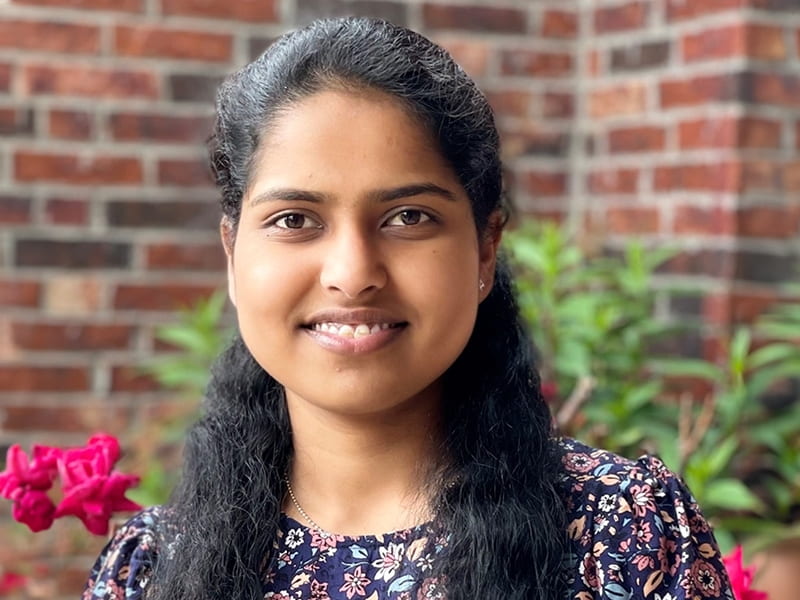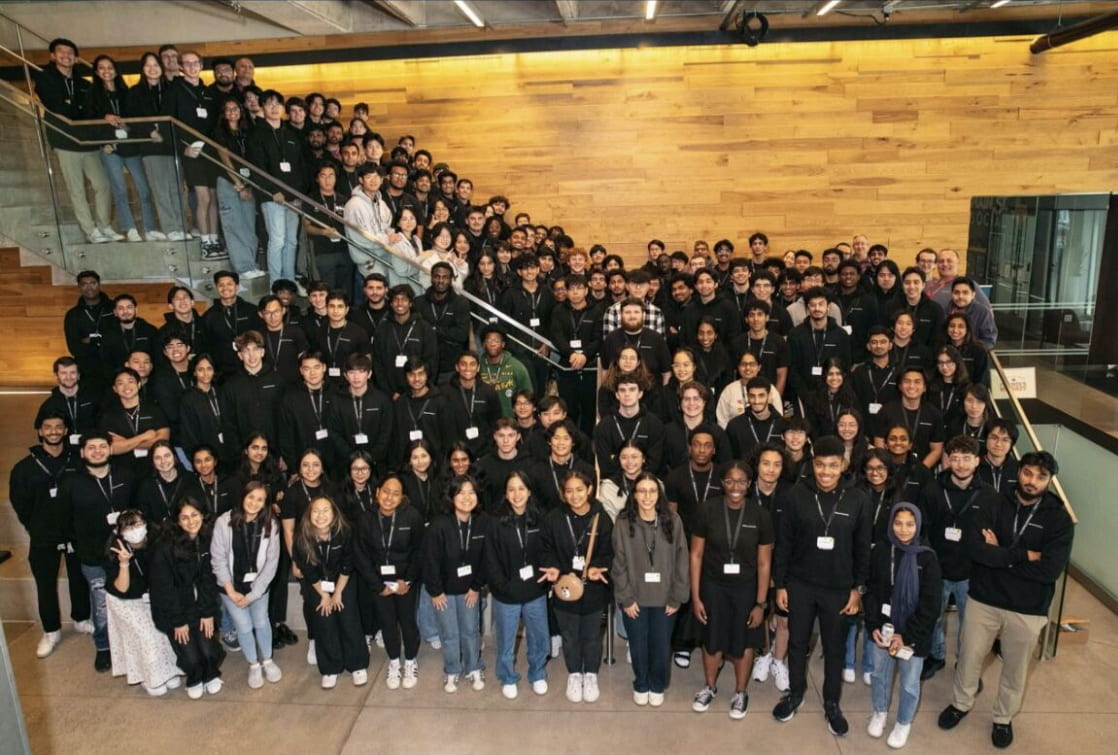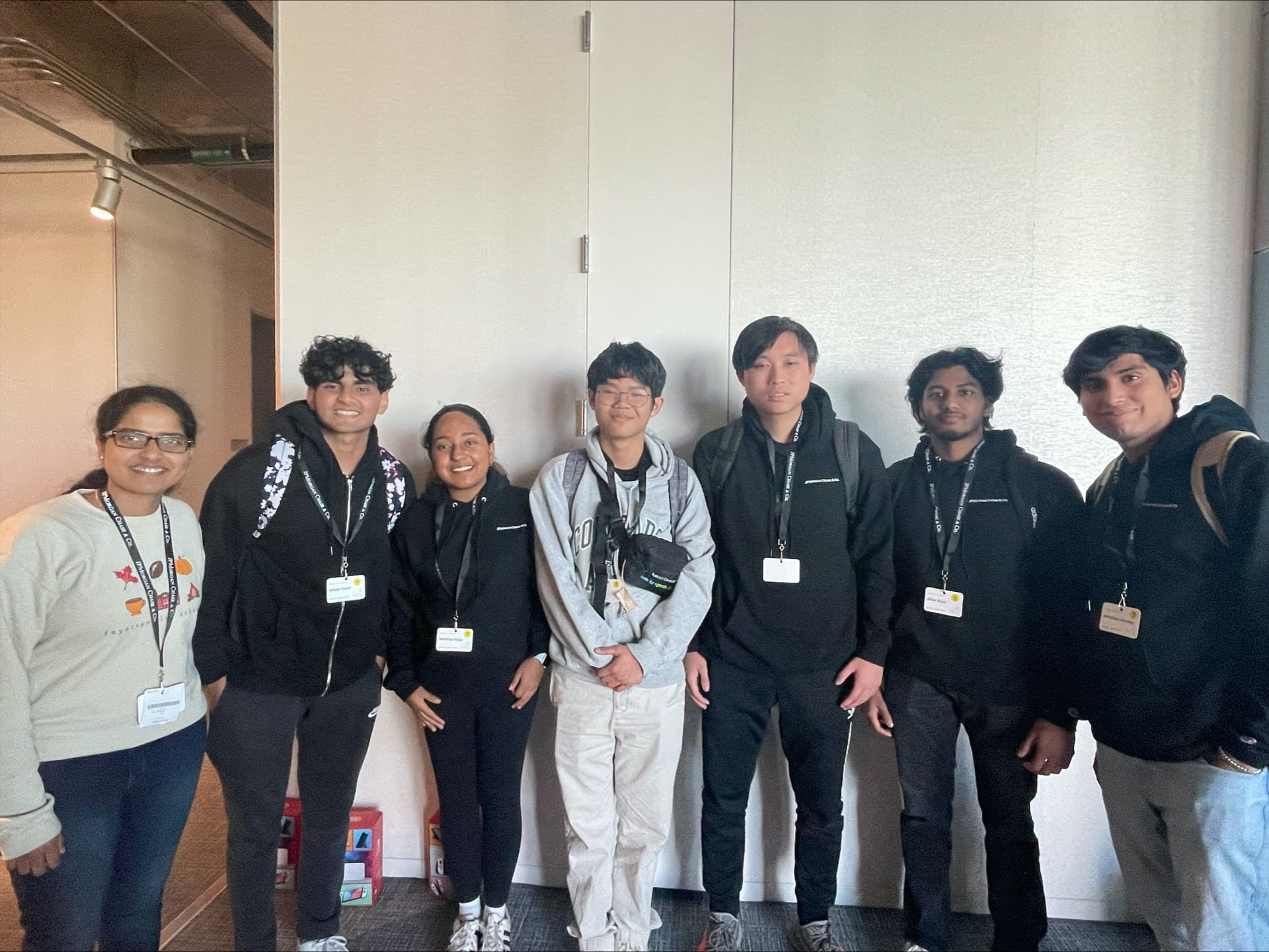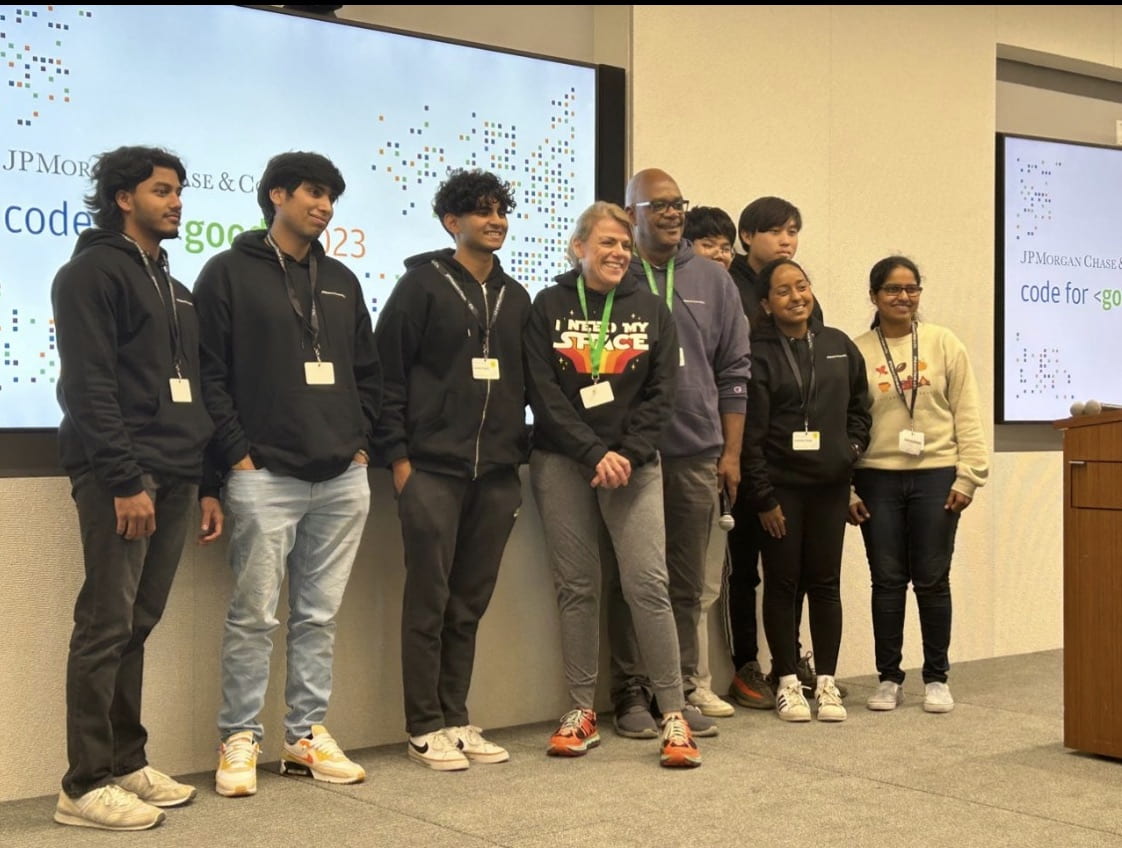Ananya Vangoor is a third year Bodenhamer fellow and recipient of the Arkansas Governor’s Scholarship from Bentonville, Arkansas, majoring in computer science and mathematics. This fall, she competed in JP Morgan Chase & Co.’s national CodeForGood Hackathon, where her team won first place in their category.
1. What inspired you to participate in the CodeForGood Hackathon?
I was looking for different companies to intern with next summer, and JP Morgan was one of the companies that had a hackathon competition as the primary channel for getting their summer interns. So that was one of the primary factors. Once I went to the competition itself, I really liked how they combined forces with a nonprofit organization and helped them out with this technical challenge by using their own resources. JP Morgan actually flew us out and everything, so it was all paid for, and they did that not for themselves, but for the nonprofit organizations. Of course, they’re also trying to look for interns, but in turn, they’re not expecting something for their company: they’re trying to help others out. So I really liked that aspect of, of the CodeForGood Hackathon.
2. How did you prepare to participate in the hackathon?
I have actually participated in a few hackathons on campus already. Every semester, the U of A’s Association of Computing Machinery hosts a hackathon that’s sponsored by some local companies here like JB Hunt, ArcBest, and others. I’ve been participating since my freshman year, and so that experience definitely helped. I was able to learn what my strengths are and also study some of the products that other teams have created. In those particular hackathons, I’ve also been able to go back and reflect on those experiences and try to build up my technical skills as well. So those definitely helped.
Before the CodeForGood Hackathon, I built on my technical knowledge of different frameworks. I read some people talk about their experiences of the hackathon online and they mentioned that it’s good to have some experience with website development or app development skills, since you’re trying to create a product in 24 hours with six other people that you’ve never met. That’s really challenging. You need to have good communication skills and also be able to divide the responsibilities up, because if you don’t get that started from the beginning, it’s going to be really hard to have a finished product at the end. I did have some experience with some app development, and thankfully, that’s what we focused on in the hackathon. That really helped because it played it to my strengths.
3. How was your experience working with fellow students from different universities from across the country on a team?
At first it was difficult to find our teammates at the Plano campus! We were randomly split into teams and there were about 170 people that attended the hackathon. So trying to find my six other teammates in that group was a little difficult, but after a few minutes, we were all able to figure it out.
The first thing we did was sit down and discuss our strengths. Who wanted to do the user interface versus who wanted to do the database stuff, the backend of the application. I think doing that really helped out and we also had a whiteboard to jot down ideas and a progress board that tracked the tasks being done. That really helped out too. And I was able to learn about my teammates there.
Everyone except for me and one other on my team was from the Texas area. We were in that type of situation you’re meeting new people and this was also an out-of-state hackathon. I was able to understand more about the competitive aspect of the competition as well, which was really nice to see. I could learn about how other students, other computer science students from different universities, were faring in this competition, and think about my own progress. What do I need to do to better myself for the future? It was a good opportunity for me to gauge where I am at.
I definitely made a lot of LinkedIn connections during that weekend. Our team also had a mentor who was an employee at JPMorgan Chase. My teammates and I also have a Discord channel where we post updates, and we’re all still in touch.
4. Your team was partnered to work with the nonprofit organization Mothers Against Drunk Driving (MADD). What problem were you solving for them and what did you come up as a solution?
MADD wanted was an application that was targeted to the younger generation, because they understood that the younger generation is who’s not understanding the drunk driving problem. And they wanted to have an informative but also interactive application, and that’s why they wanted us to create a mobile interface. This application would have some myth-busters on there and some facts about drunk driving. They wanted something that was easy to access since they already have a website full of a lot of information. Some of the feedback that they got from their users was that the website has a lot of information and it’s hard to access what we need to quickly.
We actually created a streak-based application. How it works is similar to Snapchat streaks. You log in every day and there’s a module you read, after which you answer a couple of questions. If you get those questions right, your streak increases, if you get them wrong, it goes back to zero. So, this is a way for you to not only learn more about drunk driving but also it’s engaging to the younger generation who’re interested in streaks. And the judges really liked that aspect of it. The app also had an emergency button that people can quickly click on if there was ever an emergency which is quicker than dialing 911.
Did participating in this year’s Hackathon impact your research interests or career goals?
Yeah, so I did get the software engineering internship offer from JP Morgan and accepted it, so I will be in Plano next summer. I had a previous internship with another company that was IT internship more hardware-related, but this one’s going to be more about coding and programming, which is what I want to do in the future. This experience next summer will give me a better idea of what I want to do specifically in software engineering, and will also help me with research as well. Right now my interests are in machine learning and artificial intelligence, but I think next summer will give me even a better idea of what exactly I would like to do. Just being able to have the opportunity to explore different fields within computer science will leave me with a greater understanding of the field.




